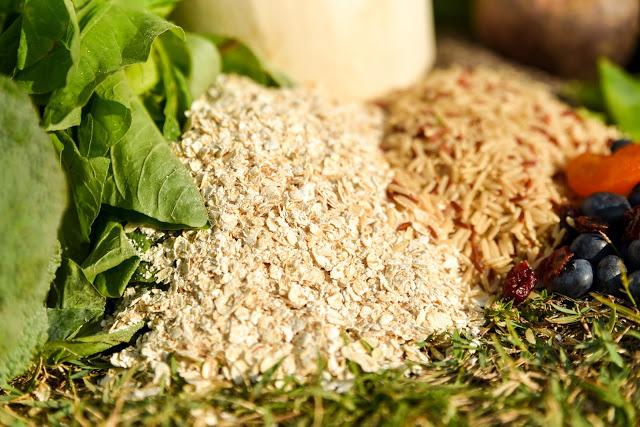
Weight loss ≠ Fat loss The body’s energy stores as per the energy balance equation occurs in 4 main forms: glycogen, muscle mass, fat mass and other critical mass. Let’s cover each at a high level to set the pretext to what constitutes an effective approach to fat loss:
Glycogen (Commonly known as water weight) – A polysaccharide (carbohydrate) that is stored in the liver and muscles. A healthy adult can store up to 500 grams of glycogen in the body. Each gram of glycogen is bound to 3-4 grams of water; this amounts to up to 2.5kg of ‘water weight’ that is prone to fluctuation. During the initial phase of a caloric deficit (especially on a low carbohydrate diet), glycogen stores often deplete drastically and give the illusion of effective fat loss.
Muscle – In a healthy adult, about 40% of total body mass is muscle mass4. Muscle metabolism makes up about 20% of your total energy expenditure5 (Energy out). It is hence crucial to preserve muscle mass during a weight loss diet because the sizeable energy expenditure it brings allows you to maintain a net energy deficit without having to drastically reduce food intake (Energy in) – eating humane portions of food is key to not feeling like absolute shit when on a diet.
Fat – Stored in Adipocytes (fat cells) as energy. A kilogram of pure fat contains about 9000kcal of energy. Human fat cells are 87% fat and 13% water + cell bio-mechanics6. A kilogram of body fat stores hence contains about 7800kcal of energy6 (9000kcal x 87%). Theoretically, to lose 5kg of body fat, you would require a 39,000kcal energy deficit (7,800kcal/kg x 5kg), assuming no changes in muscle & glycogen stores. If you want to lose this 5kg over a span of 4 months, you would need to achieve an average energy deficit of 325kcal every day (39,000kcal / 120 days).
Other critical mass (Bones, connective tissue, blood, organs etc.) – These stores change minimally in a healthy adult.
Weight loss is brought about by the depletion of glycogen, muscle and fat stores. For the sake of simplicity, we will leave glycogen stores out of the equation – regulating them is neither practical nor necessary for basic fat loss. The guiding principle is to maximize fat loss and preserve muscle mass on a weight loss diet since retained muscle mass propagates further weight loss by keeping energy expenditure levels high (it also makes you look good). This principle adds an auxiliary rule to the energy balance requirement for weight loss:
Consume sufficient protein in your diet
Protein has been proven to provide countless benefits to dieters, from preserving muscle mass to aiding weight loss and helping with satiety7. We need to qualify how much protein is considered ‘sufficient’ on a weight loss diet. Research has suggested varying recommendations for the ‘ideal’ amount, from a factor of body weight (e.g. 3g of protein per kg of body weight) to a proportion of total caloric intake (e.g. 30% of total caloric intake should come from protein). Again, for simplicity’s sake, we will go with the benchmark estimate of 2.2g of protein per kg of bodyweight.
Takeaways
So there, we have it – the 2 fundamental rules to effective fat loss:
1. Net an energy deficit
2. Consume sufficient protein (2.2g/kg of body weight) in your diet
Are there some variables that complicate fat loss beyond these two rules? Of course. We can dive into getting your recommended intake of essential fatty acids to promote further fat loss, how we should address metabolic slowdown (reduction in Energy out) brought about by a prolonged caloric deficit and so on. However, in the grand scheme of things, these factors hardly matter. They demand a lot of effort/resources but produce only minimal added benefits. Instead of going down the rabbit hole and fretting over minor details, we should focus on these two fundamental drivers that yield 90% of the results. If you’re feeling overly paranoid, you can always incorporate our product into your diet. A daily serving of Sustenance will take care of the remaining 10%.
As you will see from part 2, these caveats hardly influence the success of a fat loss diet. Dietary adherence is infinitely more important to ensure a successful diet and is where you should be focusing all your efforts on.
To be continued
References:
4. Zurlo F, Larson K, Bogardus C, Ravussin E. Skeletal muscle metabolism is a major determinant of resting energy expenditure. J Clin Invest. 1990;86(5):1423-7.
5. Joint FAO/WHO/UNU Expert Consultation on Energy and Protein Requirements. Basic metabolic rate in man. J.V.G.A Durnin. 1981
6. Wishnofsky M. Caloric equivalents of gained or lost weight. Am J Clin Nutr. 1958;6(5):542-6.
7. Phillips SM. A brief review of higher dietary protein diets in weight loss: a focus on athletes. Sports Med. 2014;44 Suppl 2:S149-53.








